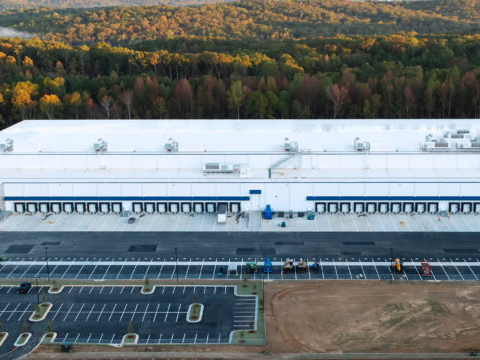US REIT Outlook ‘Deteriorating’ as CRE Lending Tightens
Chris Wimmer, CFA, on why Fitch Ratings has downgraded the sector.
A rocky first half of 2023 has led Fitch to reduce its REIT sector outlook from neutral to deteriorating, reflecting tightening of commercial real estate lending conditions resulting from U.S. banking sector stress. The deteriorating outlook also considers ongoing pressure on valuations and fundamentals from higher interest rates and macroeconomics, respectively.
Bank lending, which represents roughly half of the $5.5 trillion CRE debt market, continues to be constrained. Fitch expects further contractions in CRE credit, continuing to limit conditions for property transactions. Additionally, Fitch still anticipates the U.S. to enter a recession in late 2023, which will likely finish off the favorable operating environment during the post-pandemic rebound of the past two years.
On the positive side, most Fitch-rated REITs have the capacity to withstand such a slowdown within rating sensitivities. In particular, REITs with ample dry powder have the ability to capitalize on distressed property sales by weaker capitalized players.
Fundamentals for stronger-performing property types have generally exceeded Fitch’s expectations to date, though struggles are mounting for weaker-performing sectors. Going forward, performance by property type will likely vary widely over the next two years.
Sectors experiencing strong fundamentals, such as industrial and shopping centers, will likely see some cooling in demand. Tenants for these types of properties are showing relatively greater reluctance to lease space, delaying decisions and resulting in less pricing power for landlords. Tighter lending conditions and weaker economic growth will add to the secular pressures facing some property formats, such as offices and enclosed malls.
Office vs. industrial
The office REIT sector has met, or modestly underperformed, Fitch’s low expectations during 2023. Leasing volumes have been low as occupiers add the business cycle to the list of concerns and reasons for conservatism, along with secular pressure from remote work. Conversely, the industrial sector continues to deliver above-average occupancies and outsized rent growth that have modestly exceeded our projections.
CRE transaction volume has steadily declined since early 2022 due to the confluence of operating fundamentals pressure, higher interest and capitalization rates, limited buyer financing and looming recession risk. The jump in rates has resulted in unusually wide value discrepancies between buyers and sellers across most property types and markets, particularly in the struggling office sector. Fitch’s forward-looking U.S. equity REIT ratings incorporate assumptions about future property disposition volumes and valuations.
REIT senior unsecured issuance has been subdued in 2023, and will remain so for the balance of the year. This extends a substantial slowdown in 2022, ending three years of record-level issuance, as REITs have been unwilling to go to market while interest rates rose. Positively, near-term sector unsecured maturities are modest. Most REITs proactively managed their liabilities, utilizing the low-interest-rate environment of the past decade to term out debt and increase balance sheet flexibility.
Christopher Wimmer, CFA, is senior director, Fitch Ratings.








You must be logged in to post a comment.